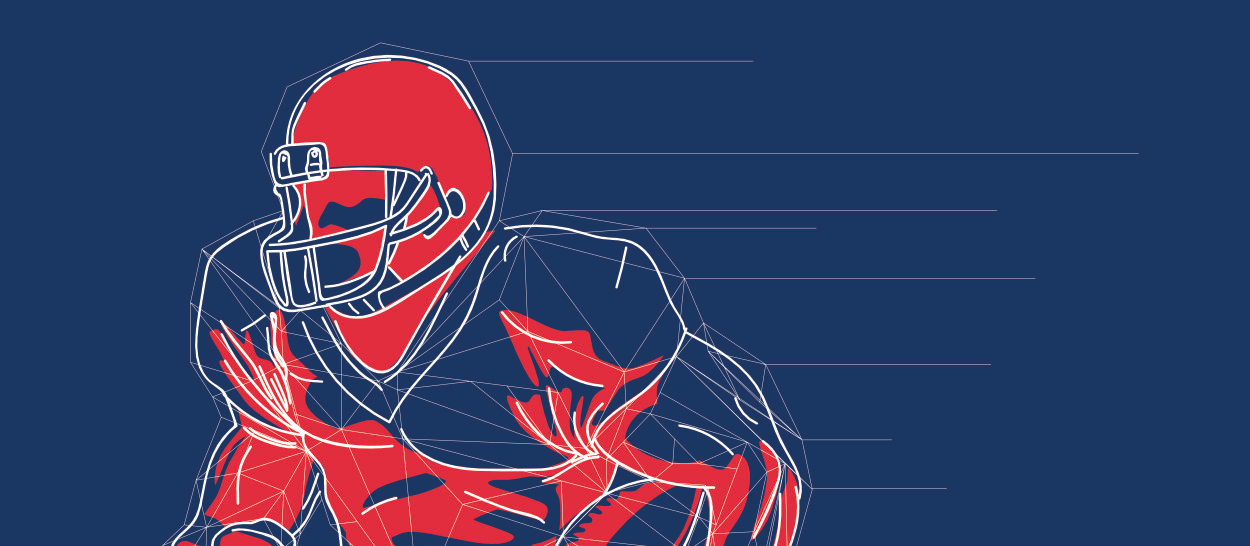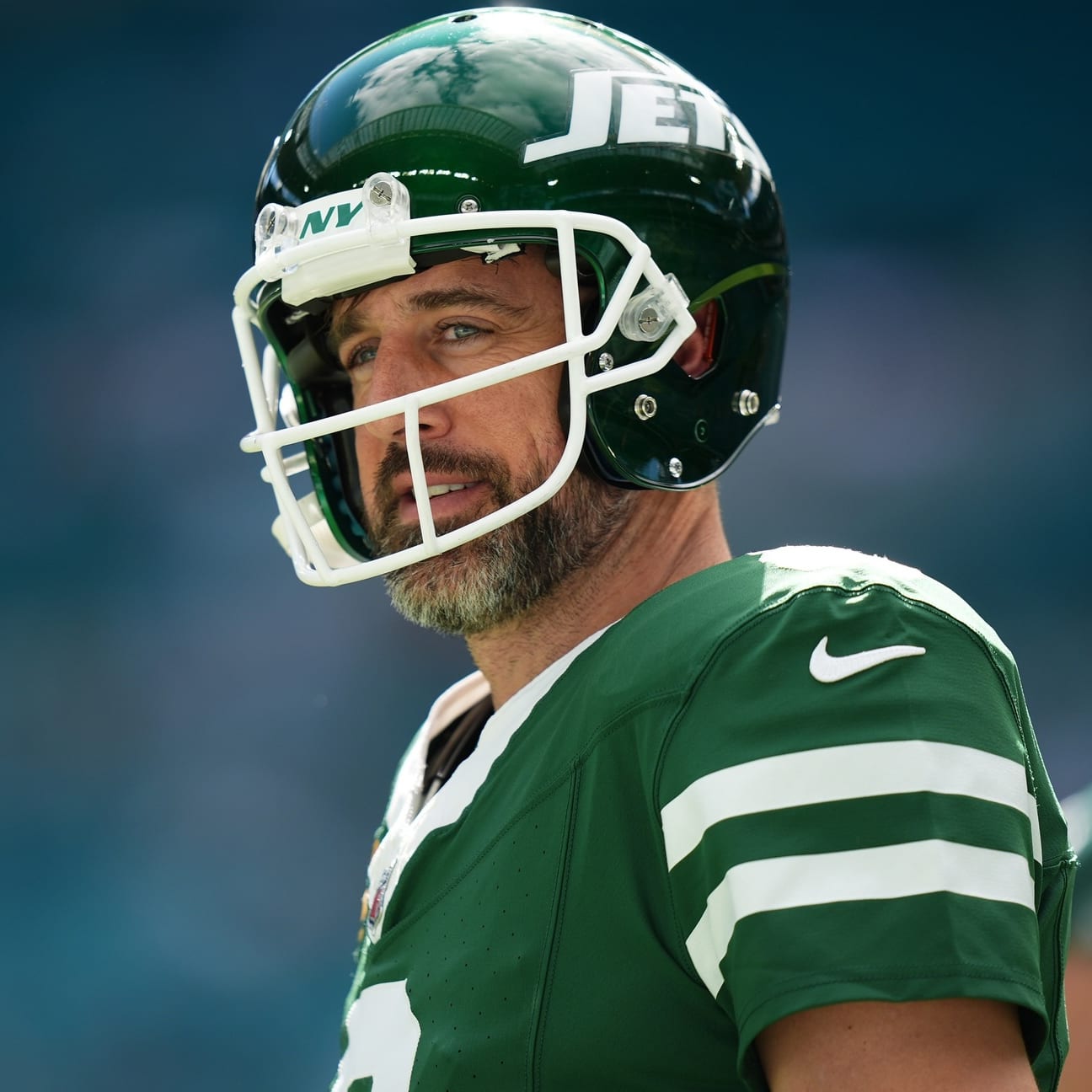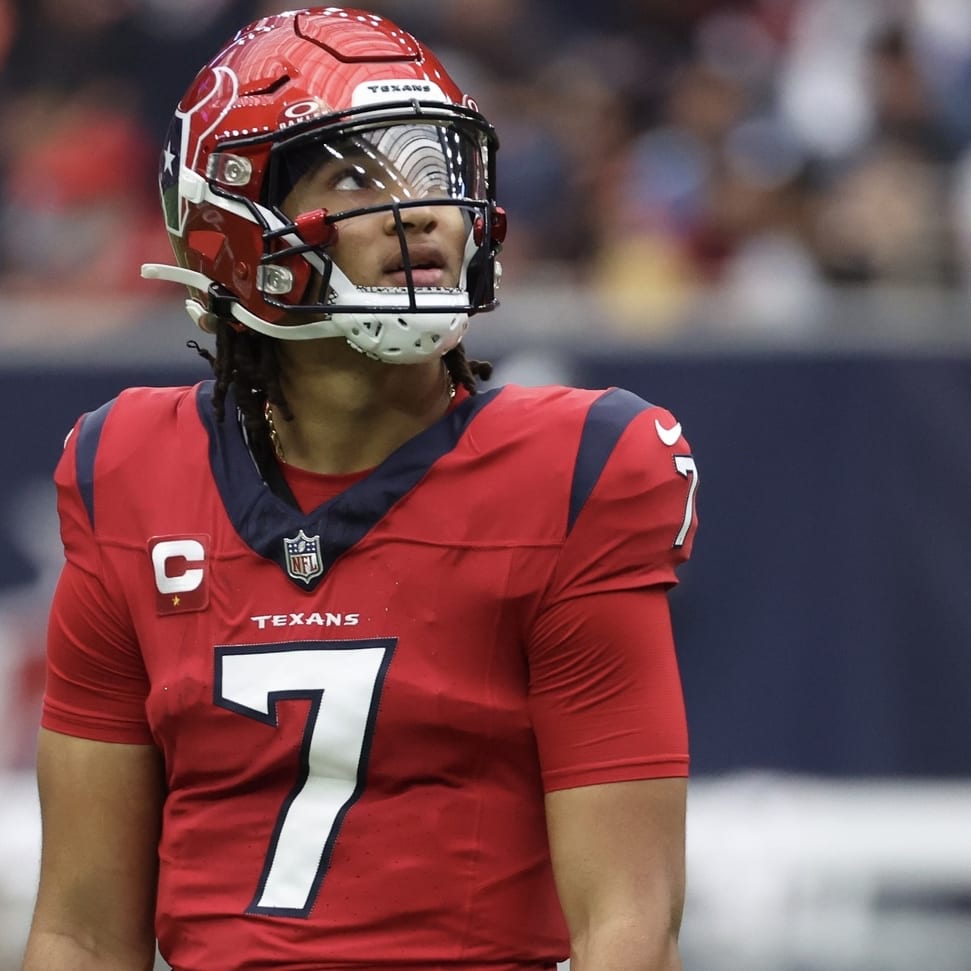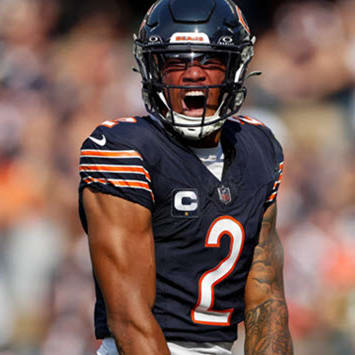This article is part of our 2010 Fantasy Football Draft Kit series.
There's still plenty that needs to shake out in training camp, but as always, there will be a number of rookies who are fantasy difference-makers this year. Correctly identifying who they'll be and drafting them accordingly (not too early, not too late) will go a long way in determining your team's 2010 fate.
*Height/Weight numbers are according to NFL.com.
QUARTERBACKS
Sam Bradford – (6-4, 236) Oklahoma – St. Louis Rams – The Rams entered the draft needing to upgrade at quarterback in the worst way, and in Bradford, they got savvy signal-caller with good polish. With A.J. Feeley, Keith Null and Thaddeus Lewis the only other quarterbacks under contract at press time, it's hard to imagine the top overall pick not being the team's Week 1 starter. Assuming his shoulder holds up, and it's been so far, so good on that front, the Rams have a player who fits the franchise cornerstone profile. As is so often the case with young quarterbacks, there will be a steep learning curve for both Bradford and his largely unproven receiving corps, so temper your expectations for his rookie season.
Jimmy Clausen – (6-3, 222) Notre Dame – Carolina Panthers – Clausen falling to the No. 48 slot in the NFL Draft was one of the event's biggest shockers and makes him the early favorite to be its steal, given that some scouts think he might be the better pro than Bradford. One of the knocks on Clausen is the perception that he's
There's still plenty that needs to shake out in training camp, but as always, there will be a number of rookies who are fantasy difference-makers this year. Correctly identifying who they'll be and drafting them accordingly (not too early, not too late) will go a long way in determining your team's 2010 fate.
*Height/Weight numbers are according to NFL.com.
QUARTERBACKS
Sam Bradford – (6-4, 236) Oklahoma – St. Louis Rams – The Rams entered the draft needing to upgrade at quarterback in the worst way, and in Bradford, they got savvy signal-caller with good polish. With A.J. Feeley, Keith Null and Thaddeus Lewis the only other quarterbacks under contract at press time, it's hard to imagine the top overall pick not being the team's Week 1 starter. Assuming his shoulder holds up, and it's been so far, so good on that front, the Rams have a player who fits the franchise cornerstone profile. As is so often the case with young quarterbacks, there will be a steep learning curve for both Bradford and his largely unproven receiving corps, so temper your expectations for his rookie season.
Jimmy Clausen – (6-3, 222) Notre Dame – Carolina Panthers – Clausen falling to the No. 48 slot in the NFL Draft was one of the event's biggest shockers and makes him the early favorite to be its steal, given that some scouts think he might be the better pro than Bradford. One of the knocks on Clausen is the perception that he's cocky, but that's an aspect of his personality that could actually help him excel if properly channeled. At this stage Clausen can make all the NFL throws, but with Matt Moore still around, Clausen won't be rushed. Still, the team isn't especially attached to Moore, and if he struggles out of the gate, Clausen could see the field as a rookie. Note that the Panthers are built to run, and once you get past Steve Smith, the receiving corps is a work in progress.
Tim Tebow – (6-3, 236) Florida – Denver Broncos – The Broncos already had Kyle Orton and Brady Quinn in the fold, so this was an intriguing pick, to say the least. The athletic Tebow is coming off a fantastic college career but has some developing to do as a quarterback, especially with his throwing mechanics. Still, his work ethic, attitude and leadership abilities are top shelf, and the Broncos can afford not to rush him into a starting role. That said, don't be surprised if coach Josh McDaniels finds a way to get Tebow on the field a few plays per game as a rookie. While there are plenty of skeptics, Tebow's results at Florida are hard to ignore, and there's little doubt he'll do everything in his power to succeed at the NFL level.
Colt McCoy – (6-1, 216) Texas – Cleveland Browns – Potentially a ridiculous value pick, given that he lasted until the 85th selection in the draft. McCoy, who had a productive run with Texas, may not have a rocket arm, but he's a winner who has showed poise and leadership during his college career. How well he can transition from college to the pro game will determine whether he projects as a starter or backup at the NFL level. In any case, unless injuries hit the Browns hard, he's unlikely to leapfrog both Jake Delhomme and Seneca Wallace as a rookie.
RUNNING BACKS
Ryan Mathews – (6-0, 218) Fresno State – San Diego Chargers – Faced with the prospect of rolling with the dynamic but diminutive Darren Sproles this season, the Chargers moved up aggressively in the draft to tab Mathews with the 12th overall pick. He was snatched in the second round of our magazine mock draft, and that's based on the logical assumption that he'll be San Diego's lead back, as well as the one who gets the goal-line carries. It's all about opportunity, and while Mathews won't likely match LaDainian Tomlinson's 339-carry rookie workload, coach Norv Turner predicts about 250 carries for him, with a dash of Sproles as a change-of-pace. Assuming that's the case, 1,000-plus rushing yards and double-digit TDs are within reach for the Bolts' new power back.
Jahvid Best – (5-11, 199) California – Detroit Lions – It's harder to spell Best's first name than it is to predict his role with the Lions, given that Kevin Smith is coming off a serious knee injury, and Maurice Morris is, well, Maurice Morris. Best lacks ideal size and comes with legitimate durability concerns, including a concussion that ended his senior season. On the plus side, he's an explosive back playing in an offense in need of playmaking from the RB position. Whether he can carve out a goal-line role largely hinges on his ability to find clear-cut holes or bounce it outside, but there's no obvious vulture back on the Lions' roster, so Best could end up being the second most valuable rookie fantasy contributor (behind Mathews) this season.
C.J. Spiller – (5-10, 196) Clemson – Buffalo Bills – The Bills took some heat for ignoring more pressing needs, but Spiller is arguably the draft's most electric playmaker, and the team will figure out ways to use him, despite the presence of Fred Jackson and, for now at least, Marshawn Lynch. Spiller has drawn comparisons to Reggie Bush and to a lesser degree Chris Johnson, which is a hint of how explosive he can be. Since a timeshare appears to be his destiny to begin with, Spiller could be a feast-or-famine player early on, but his upside is that of a player dynamic enough for Buffalo to keep on the field as much as possible, provided he can take the NFL pounding.
Ben Tate – (5-11, 220) Auburn – Houston Texans – Tate is going to be a trendy pick, but he'll have to compete with Steve Slaton, who is recovering from neck surgery, and Arian Foster, who averaged 4.8 yards per carry last year. Slaton is reportedly healthy and in much better shape than he was during his sluggish 2009 campaign, so he can't be written off. In short, the powerful Tate is likely to earn his stripes as part of a committee, but if injuries hit, or Slaton's fumble issues crop up again, then Tate's toughness and ability as a downhill runner could land him atop the depth chart.
Montario Hardesty – (6-0, 225) Tennessee – Cleveland Browns – Hardesty gives the Browns another running back option in the post-Jamal Lewis era. Durability has been an issue for him, but Hardesty is a powerful runner with good vision and quick feet, who can gain yards after contact. He's already impressed the Browns coaching staff, and with a strong training camp/preseason, Hardesty could generate some sleeper buzz as a rookie. Just don't discount the presence of the smaller, more explosive Jerome Harrison, who finished very strong in 2009.
Toby Gerhart – (6-0, 231) Stanford – Minnesota Vikings – The Vikings needed to fill the void left by Chester Taylor's exit, and while Gerhart is more of a power runner than his predecessor, his value lies both in his ability to complement Adrian Peterson and to serve as an insurance policy with enough inside running ability to handle the load if Peterson goes down. Since we don't envision a true time-share situation for Gerhart, he's probably only worth a late dart if you're a Peterson owner or simply looking to stash upside running backs as backups.
Jonathan Dwyer – (5-11, 229) Georgia Tech – Pittsburgh Steelers – Dwyer, who was the 188th pick overall in April, was major draft faller. Some peg him as a system back after he worked out of the triple-option in college. That said, as long as he can stay in top shape, he has the inside running ability to compete with and overtake Mewelde Moore as Rashard Mendenhall's backup.
Anthony Dixon – (6-1, 233) Mississippi State – San Francisco 49ers – Dixon, who brings a power element to the 49ers' backfield, will complement starter Frank Gore and perhaps threaten last year's top backup, Glen Coffee. If Dixon keeps an eye on his weight and conditioning, then he could be an effective short-yardage weapon and is a name to file away for those in TD-heavy leagues.
Charles Scott – (5-11, 238) LSU – Philadelphia Eagles – Scott is a bruising back who can take some of the heat off LeSean McCoy. If Scott can overtake the likes of Mike Bell and Leonard Weaver, he could be a short-yardage factor as a rookie.
Joe McKnight – (5-11, 198) USC – New York Jets – The Jets thought enough of McKnight, who played two seasons with Mark Sanchez at USC, to move up in the fourth round of the draft to acquire him, but he didn't exactly dazzle the team with his conditioning at minicamp. McKnight, who essentially replaces the similarly skilled Leon Washington, has plenty of time to get in better shape by the time training camp rolls around, but he has much to prove if he hopes to carve out a significant role behind Shonn Greene and LaDainian Tomlinson as a rookie.
James Starks – (6-2, 218) Buffalo – Green Bay Packers – Starks lasted until the sixth round in large part because he missed his senior season with a shoulder injury, but he's a good pass-catcher out of the backfield who keeps his legs churning. If he can stay healthy, he has a legitimate chance to overtake Brandon Jackson as the heir to the Ryan Grant throne.
Deji Karim – (5-11, 205) Southern Illinois – Jacksonville Jaguars – Karim was a productive collegiate runner for Southern Illinois, and he has good wheels (4.46-40), but it remains to be seen how he adapts to the quantum leap in the level of competition he'll be facing as a pro. He could see action as a third-down back and possibly as a kickoff returner as a rookie, but it would take injuries to Maurice Jones-Drew and Rashad Jennings for him to make much of a fantasy impact.
LeGarrette Blount – (6-0, 241) Oregon – Tennessee Titans – Blount was suspended last season after punching a Boise State player after the season opener, which limited him to three games and caused him to fall out of the draft. Still, the Titans may have found themselves a gem who could conceivably earn a short-yardage role behind stud starting back, Chris Johnson. Stafon Johnson is another undrafted back, who could stick, but at this point we think it's Blount who has the best chance of overtaking Javon Ringer as the No. 2 RB on the Titans depth chart.
WIDE RECEIVERS
Dez Bryant – (6-2, 225) Oklahoma State – Dallas Cowboys – After seeing Bryant at the team's rookie minicamp, Cowboys coach Wade Phillips called him "an absolute talent" and gushed about the former Oklahoma State star's great body control, hands, quickness and power. Off-field concerns caused Bryant to slide to the No. 24 spot in the draft, but as long as he stays in line in Dallas, the team has a potentially elite big-play threat on its hands. Bryant will need to overtake Roy Williams, in whom the team has a great deal invested, so the fantasy explosion may not happen right away. But look for Bryant to be a legitimate lineup option as soon as injuries hit, or if the Cowboys simply decide to roll with their most talented weapons. Draft him as an upside play, but note that those who want him will likely need to be aggressive if the positive buzz continues to grow.
Demaryius Thomas – (6-3, 224) Georgia Tech – Denver Broncos – Rookie wideouts are a crapshoot, but in the right circumstances, they can make an immediate splash. That's why we think Thomas may end up providing the best fantasy value in 2010, based on his projected role relative to where he can be had in fantasy drafts. The Broncos have a couple of steady vets in Jabar Gaffney and Brandon Stokley, as well a bounce-back candidate in Eddie Royal, but the trade of Brandon Marshall creates a playmaking void that Thomas is better qualified to fill. Thomas isn't the marquee name Bryant is, but he combines size and excellent athleticism with big play potential and, unlike Marshall, comes baggage-free. Assuming Thomas can avoid too many drops, an area of slight concern, he should be an immediate impact player in the NFL.
Arrelious Benn – (6-1, 219) Illinois – Tampa Bay Buccaneers – Although he lasted until the second round of April's draft, Benn enters a good situation with Tampa Bay in terms of opportunity. With Antonio Bryant signing with the Bengals this offseason, Benn has a good chance to step right into a key role. His modest stats (38/490/2 in 12 games) in 2009 were a product of a spotty QB situation at Illinois, so it's not hard to imagine him putting up better numbers as an NFL rookie, given his after-the-catch skills and the very real possibility he'll open the season as Josh Freeman's go-to wideout.
Mike Williams – (6-1, 221) Syracuse – Tampa Bay Buccaneers – While we don't expect Williams' production to surpass Benn's, he was a tremendous value in the fourth round and has a chance to open the season as a starter, given the collection of uninspiring veteran talent Tampa Bay has otherwise assembled. Assuming that's the case, his production will hinge on Freeman's development, but there's some sleeper potential here if the Bucs passing offense takes a leap in Freeman's second year.
Golden Tate – (5-10, 199) Notre Dame – Seattle Seahawks – Although Tate lacks elite speed and size, he has solid hands and good run-after-the catch ability that he could parlay into big plays with the Seahawks opposite T.J. Houshmandzadeh. Tate merely has to beat out the likes of Deon Butler and Deion Branch for a starting gig – something we expect him to do before too long.
Emmanuel Sanders – (5-11, 186) SMU – Pittsburgh Steelers – Sanders is slightly built, but his blend of quickness and explosiveness will allow him to compete for the Steelers' No. 3 wideout job behind Hines Ward and Mike Wallace. Unless Antwaan Randle El or Arnaz Battle experiences major career renaissance, we think the job will be his, putting Sanders a single injury away from an immediate impact.
Eric Decker – (6-3, 217) Minnesota – Denver Broncos – While Decker is behind Eddie Royal, Jabar Gaffney, Brandon Stokley and Demaryius Thomas at this point, there's some potential for upward mobility in the post-Brandon Marshall era in Denver. While not the big-play threat that Thomas is, Decker could make an impact as a possession receiver, provided he's past a foot injury that required surgery.
Dexter McCluster – (5-9, 172) Mississippi – Kansas City Chiefs – Look for the Chiefs to experiment using McCluster, a multi-purpose offensive threat, all over the field to see where he can make the biggest impact; be it out of the backfield, the slot or as a returner. McCluster's lack of ideal size may limit him to a hit-or-miss combo of workload and production, but he is an explosive playmaker, who could turn into a major weapon for the Chiefs in time.
Brandon LaFell – (6-2, 211) LSU/Armanti Edwards – (5-11, 187) Appalachian State – Carolina Panthers – If you think Dwayne Jarrett is the real deal, then stop reading now. If not, then it stands to reason that either LaFell or Edwards could claim the Panthers' starting receiver job opposite Steve Smith. We think LaFell's size and physicality give him the edge, so consider him the sleeper here. Edwards is the supersleeper, given that he'll be making the switch from the QB position, but his athleticism makes him an intriguing prospect.
Mardy Gilyard – (6-0, 187) Cincinnati – St. Louis Rams – Gilyard could stand to bulk up a bit, but he is a fine playmaker who has a chance to develop into a useful weapon for top-pick Sam Bradford. There will be growing pains for both of them, but it will be worth watching how well Gilyard does early on, as there's not a whole lot settled in the Rams' receiving corps beyond Donnie Avery.
Taylor Price – (6-0, 204) Ohio – New England Patriots – Price has good size and ran a 4.41-40, so he could develop as a vertical threat for New England with some work on his route-running. Adding depth and youth to their wideout corps was an offseason priority for the Pats, and they can afford to bring Price along gradually, given the presence of Randy Moss, Torry Holt, Julian Edelman and, to a lesser degree, Brandon Tate, Sam Aiken and David Patten.
Jordan Shipley – (5-11, 193) Texas – Cincinnati Bengals – With Chad Ochocinco and Antonio Bryant locked in as starters and Andre Caldwell still around, Shipley projects as a slot receiver and returner for the Bengals. While he possesses the polish to help out right away, his fantasy impact as a rookie will likely be limited, barring a slew of injuries.
Andre Roberts – (5-11, 195) Citadel – Arizona Cardinals – With Larry Fitzgerald, Steve Breaston and Early Doucet ahead of him, the quick Roberts is likely to make most of his initial impact in the return game, but if any of the top three were to go down, he could help out in the slot as well.
Damian Williams – (6-1, 197) USC – Tennessee Titans – Williams is a good route runner who projects as a possession receiver in the NFL. Even as he establishes his role in the offense with Tennessee behind Nate Washington, Justin Gage and Kenny Britt, he can contribute as a punt returner.
TIGHT ENDS
Jermaine Gresham – (6-5, 261) Oklahoma – Cincinnati Bengals – It's been ages since a Bengals tight end was a fantasy factor, but assuming he can stay healthy, Gresham – who missed his senior season with a knee injury – could break that trend with his playmaking upside. Consider him a low-risk, high-reward option if your league's roster requirements give you the flexibility to draft a backup tight end.
Rob Gronkowski – (6-6, 264) Arizona – New England Patriots – With Ben Watson and Chris Baker gone, there's an immediate opportunity for Gronkowski (who has been given a clean bill of health after missing the 2009 season with a back injury) to make an impact as a receiver. QB Tom Brady is not shy about targeting his tight ends in the red zone, so Gronkowski has some fantasy potential in the New England offense.
Aaron Hernandez – (6-2, 245) Florida – New England Patriots – Veteran free agent addition Alge Crumpler now has some talented young company within the Patriots' tight end corps, following the team's selections of Hernandez and Gronkowski. In Hernandez, New England predictably goes with yet another Florida Gator, but he's a great value in the fourth round, given his prowess as a pass-catcher in the mold of Chris Cooley. Credit his draft tumble to reports about failed drug tests while in college, but assuming no further transgressions, that should be a nonissue going forward.
Ed Dickson – (6-4, 249) Oregon – Baltimore Ravens – Dickson, an athletic pass catcher, will be working behind Todd Heap, but his veteran counterpart is not only getting up there in years but has had durability issues. Dickson would make a nice in-season pickup if Heap goes down at any point.
Jimmy Graham – (6-6, 260) Miami – New Orleans Saints – Graham is considered a raw prospect given his relative lack of high-level football experience, but he could end up developing into the latest basketball-player-turned tight-end success story a la Tony Gonzalez/Antonio Gates. Graham impressed coach Sean Payton during the Saints' rookie camp, but there's no need to hurry him with Jeremy Shockey and David Thomas still in the fold.
Dennis Pitta – (6-4, 245) BYU – Baltimore Ravens – The Ravens made tight end a priority in the draft, going with Dickson in Round Three and Pitta in Round Four. We expect Dickson to emerge as Heap's top backup, but Pitta is a fine pass-catcher in his own right, so that's not written in stone.
Tony Moeaki – (6-3, 245) Iowa – Kansas City Chiefs – Moeaki has a real chance to earn significant playing time as a rookie with a strong training camp and preseason, given that the Chiefs were hardly loaded with tight end talent before his selection. Durability is a concern, but Moeaki has the pass-catching ability to be a productive player from the outset.
Garrett Graham – (6-3, 243) Wisconsin – Houston Texans – Owen Daniels, another Wisconsin product, worked out pretty well for the Texans, but he's coming off another knee surgery, so Graham gives the team a nice insurance policy in the pass-catching TE department.
Clay Harbor – (6-3, 252) Missouri State – Philadelphia Eagles – Brent Celek is locked in as the Eagles' top tight end, but if Harbor can beat out the injury-prone Cornelius Ingram for the top backup spot, his athleticism and receiving ability give him some upside.
DEFENSIVE BACKS
Eric Berry – (6-0, 211) Tennessee – Kansas City Chiefs – The safety's playmaking ability and rare athleticism will help him make an immediate impact as a rookie starter.
T.J. Ward – (5-10, 211) Oregon – Cleveland Browns – Considered a reach by many, but the Browns didn't draft him to sit, and he figures to start right away at strong safety.
Nate Allen – (6-0, 207) South Florida – Philadelphia Eagles – The sort of playmaking safety the team has lacked since the departure of Brian Dawkins.
Earl Thomas – (5-10, 208) Texas – Seattle Seahawks – Ball-hawking safety should start and make plays right away for Seattle.
Taylor Mays – (6-3, 230) USC – San Francisco 49ers – Huge safety with excellent speed delivers big hits. Coverage skills need work, but could eventually push Michael Lewis out of the starting job.
LINEBACKERS
Rolando McClain – (6-3, 254) Alabama – Oakland Raiders – Replaces middle linebacker Kirk Morrison, who racked up plenty of tackles for Oakland.
Sean Weatherspoon – (6-1, 239) Missouri – Atlanta Falcons – Could be a four-down player if he overtakes Mike Peterson or Stephen Nicholas.
Daryl Washington – (6-2, 230) TCU – Arizona Cardinals – An athletic linebacker, who should fill the void created by the departure of the productive Karlos Dansby.
Phillip Dillard – (6-0, 245) Nebraska – New York Giants – Could compete right away for a starting spot in the middle following the release of Antonio Pierce.
DEFENSIVE LINE
Derrick Morgan – (6-3, 266) Georgia Tech – Tennessee Titans – The Titans hope he can help fill the pass-rushing void created by the loss of Kyle Vanden Bosch.
Brandon Graham – (6-1, 268) Michigan – Philadelphia Eagles – Brought in to boost the Eagles pass rush and should contribute immediately.
Jerry Hughes – (6-2, 255) TCU – Indianapolis Colts – Hughes is undersized, but he brings speed and a good motor to the table, traits the Colts seem to value in their pass rushers.
Ndamukong Suh – (6-4, 307) Nebraska – Detroit Lions – A huge presence on the Detroit line who upgrades the team D in a major way. His ability to get to the QB could help IDP owners as well.









